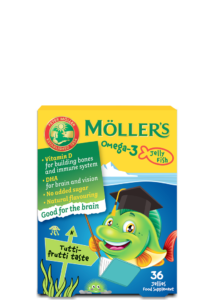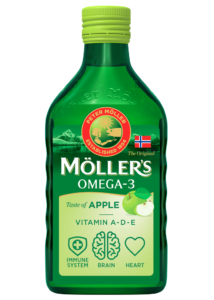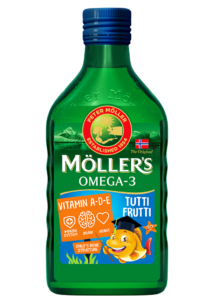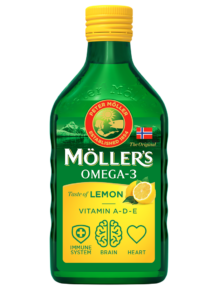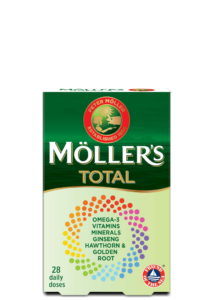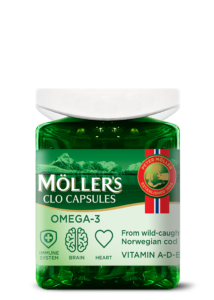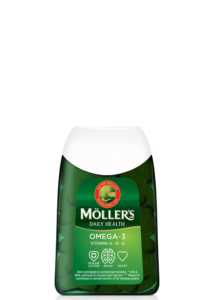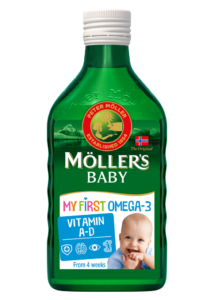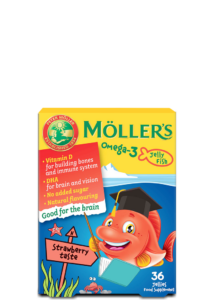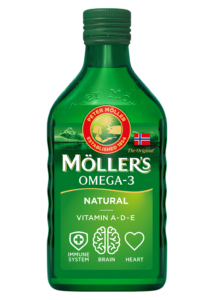Mature skin needs proper nourishment from both the inside and out. Here are our top skin care tips to keep your skin looking its best.
Home » Skin care for mature skin from the inside and out

Skin care for mature skin from the inside and out
Keep your healthy skin with the right nutrition
You are what you eat and one of the first places a poor diet shows is on the surface of your skin, whatever your age. Skin cells are created in the inner layer of the skin, where they have to settle for the nutrients remaining after more vital body parts have had their share. So, the trick to good skin care is to make sure you get enough of the nutrients your skin needs – in addition to providing care from the outside.
Vitamins for skin care
Vitamin A is essential for forming new skin cells and maintaining normal skin. Good sources of vitamin A are:
- Liver, liver paste, oily fish, eggs, margarine, milk, butter and cheese.
- Fruits and vegetables with lots of colour, such as carrots, broccoli, peppers, kale and apricots.
- Fish oil and other omega-3 supplements.
Vitamin C helps produce collagen, which is an important building block for normal skin. Good sources of vitamin C include:
- Citrus fruits like oranges and kiwi.
- Berries such as strawberries and blackcurrants.
- Peppers, broccoli, rutabaga, spinach and tomato.
Simple mature skin care tips from the outside
The skin also depends on proper care from the outside. Older skin will need extra moisture and should be treated more gently than younger skin.
Here are our top tips:
- Moisturising cleanse
With age, the skin becomes more sensitive and easily dehydrated, which is why it’s important to use a mild, moisturising cleanser that doesn’t remove the protective lipids from the skin surface.
- Gentle exfoliation
Peeling a few times a week removes rough, dead skin cells that can prevent your moisturiser from working effectively, and it gives you a healthy glow. But traditional peels can scratch the surface of your skin and damage it. You should go for a gentle face peel that contains, for example, enzymes that dissolve dead skin cells instead of scrubbing them away.
- Lots and lots of moisture
You need extra moisture when you get older, often more than you realise. So treat yourself to a good moisturiser, preferably one with hyaluronic acid and use it diligently and generously morning and night. And remember to drink water – fresh water is good for your skin and health.
- Sunscreen
Never skip sunscreen! The sun causes around 90% of the signs of aging, such as wrinkles and age spots. Remember, your tan is temporary, your wrinkles are forever. And yes, you get a tan even if you protect your skin with suncreen. It just takes a bit longer but, in return, you get a deeper longer-lasting colour.
What is good health?
Do you have a good lifestyle?
Lifestyle simply means the way in which you live. Health and lifestyle go hand in hand. You might feel you have a good lifestyle if you are physically active, eat healthily and generally experience a sense of wellbeing. Conversely, if you want good health you should also have a good lifestyle.
Physical activity is the major contributor to a good lifestyle, but diet, drugs, stress, sleep and social conditions are also play an important role. Being able to use the body properly to avoid injury also affects lifestyle. Physical activity can also prevent depression and help you to recover more quickly from mental illness, both of which obviously affect your lifestyle.
Diet can be a difficult topic for many. Perhaps you eat too much or too little or maybe you find it hard to know what foods to combine to have a balanced diet. It’s also important to eat food that contains important vitamins, minerals and dietary fibre, omega-3 and antioxidants. On top of all this, you also need to get enough energy, protein and the correct fatty acids. The requirement for these nutrients changes throughout your life. When you are older you also have different requirements than children and younger adults. Women also have different requirements than men. Pregnant and breastfeeding mothers also have special requirements.
When you get older, you lose muscle mass and your body requires less energy and therefore less food. You may lead a less active life than you did before, which is why you require less food. However, your need for minerals, vitamins and other nutrients remains the same. Of course, there are plenty of healthy and active older people, but when you reach 70 to 80 years of age, it’s easier to become ill, especially during flu season.
Some steps you can take to improve your lifestyle and health are to:
- eat a healthy and varied diet
- stay active
- watch your weight
- avoid too much alcohol and don’t smoke
- get enough sleep
- think positive
- practise good hygiene
What is good quality of life?
The World Health Organisation (WHO) defines quality of life as a state where the individual can realise their potential, cope with normal stressful situations, work in a rewarding and positive way, and be able to contribute to others and society.
Quality of life is a wide and somewhat diffuse concept that includes joy in, and a desire for, life. These are values that are rather felt than measured, which in turn are based on personal environment and choices. Quality of life doesn’t necessarily depend on being healthy or sick. It’s the moments between worries, sorrows, problems and ailments that matter. For example, if you have a chronic illness, a feeling of mastery can be important when talking about quality of life.
To sum up, quality of life is a combination of health, lifestyle, networks and social support. It’s about experiencing joy, meaning in life, satisfaction, security and a sense of belonging, as well as being able to use your strengths. It’s also about feeling interest in life, coping with everyday situations and a being committed to something or someone. If you have good quality of life, you will be able to cope better with the inevitable stressful situations in life.
Our products
-
Möller’s Omega-3 Jelly Fish Cola
-
Möller's Omega-3 Jelly Fish Tutti Frutti
-
Möller’s Cod Liver Oil Apple
-
Möller’s Cod Liver Oil Tutti Frutti
-
Möller’s Cod Liver Oil Lemon
-
Möller's Total
-
Möller's Cod liver oil capsules
-
Möller’s Daily Health
-
Möller's My First Omega-3
-
Möller’s Omega-3 Jelly Fish Strawberry
-
Möller’s Cod Liver Oil Natural
Learn more
Exercise program for the elderly
Healthy Aging Healthy Bones
Healthy diet during pregnancy
Brain Healthy Aging
Good health, lifestyle and quality of life – What does it all mean?
Cod Liver Oil Healthy Aging
Get inspiration on our Instagram

